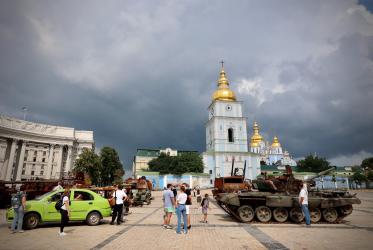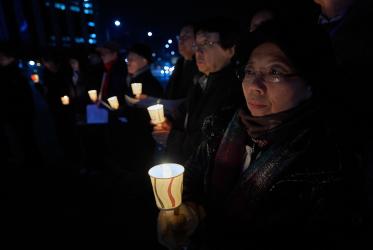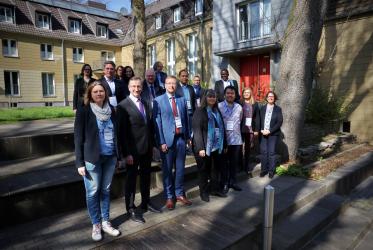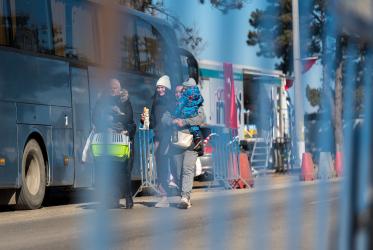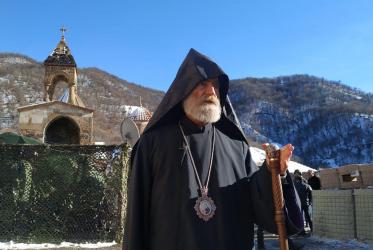Displaying 1 - 15 of 15
Perspectives chrétiennes sur la dignité humaine et les droits humains
11 April 2022
Wuppertal, Allemagne / online
COVID-19 in conflict zones: “a crisis within another crisis”
27 November 2020
“Conflict Zones and Covid-19” webinar
26 November 2020
“Good healthcare a right, not a privilege,” says WCC-EAA
11 October 2017
